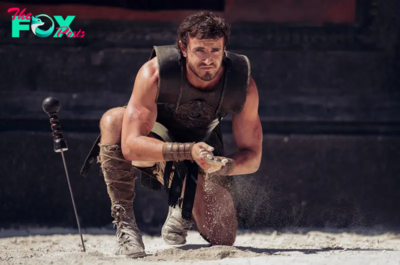Entertainment
House of the Dragon Keeps Pushing the Song of Ice and Fire Prophecy—and It’s Not Working
Everyone remembers Game of Thrones' epic battle sequences—the Battle of Blackwater, the Battle at Hardhome, the Battle of the Bastards. But the one-on-one scenes between characters were often just as powerful. They explored characters' motivations and intrapersonal coNFLicts before they headed into battle and allowed great actors like Peter Dinklage and Lena Headey to show off their skills. It was these quiet moments that made Game of Thrones great. That can be true of prequel series House of the Dragon, which takes place nearly 200 years before the events of Game of Thrones, too. CGI dragons can lose their luster after awhile. What keeps us tuning in is the psychological drama that plays out between the families before they get to the battlefield.
Which is why, in theory, it was so exciting to see the two leads of House of the Dragon, Rhaenyra Targaryen (Emma D'Arcy) and Alicent Hightower (Olivia Cooke), reunite at the end of the third episode of Season 2. The circumstances might have been a little hard to believe—just how did both Daemon and Rhaenyra manage to sneak into King's Landing within the span of two episodes?—but it made for a fascinating, tension-filled scene. After all, these two characters have been in a proxy battle for years now, warring with each other from afar ever since one literally swiped at the other with a knife back in Season 1.
Read More: Breaking Down the Complex Targaryen Family Tree on House of the Dragon
The scene reunites two of the best actors on the show and lets them cook, striving for the highest highs of Game of Thrones. But it also brings back another aspect of the original series that proved far less compelling: The damn prophecies.
The problem with prophecies
Prophecies, and fans' insistence on analyzing them, dragged down the end of Game of Thrones. They can be a canny way to play with fantasy tropes and religion, and George R.R. Martin deploys them several times successfully in the books, using the prophecies that, say, all Cersei's children will die or that Stannis needs to make a sacrifice to win the battle to set his characters on a doomed trajectory.
But prophecies are often a plot trap. If they are fulfilled to the letter, there's no element of surprise; the event feels anticlimactic. If the writers try to find a way to twist the prophecy's meaning and thus shock the audience, the results can be clever or just convoluted. If the show creators ignore the prophecies, they diminish their importance and any time characters spend talking about them can seem like a waste of time. Close watchers of Game of Thrones will remember that several of the prophecies—Maggy the Frog, Azor Ahai—only sort of came true. Some, like the Stallion That Mounts the World prophecy, completely fell away.
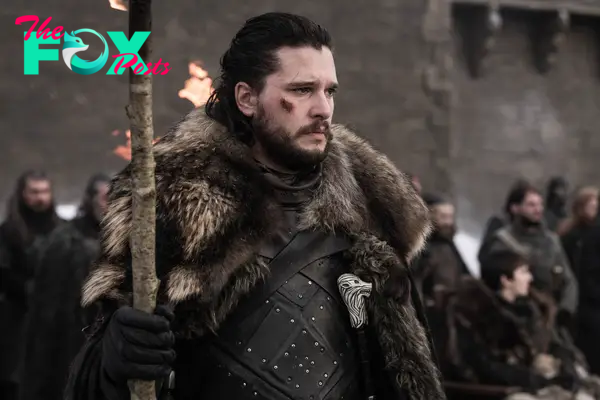
So it was frustrating when, early in Season 1, the most popular Game of Thrones prophecy showed up in House of the Dragon. The Prince Who Was Promised, also known as the Song of Ice and Fire, both propelled Game of Thrones and stymied it. It predicted that when winter (a.k.a. the White Walkers) arrived, a Targaryen who could unite the realm against the threat would need to be seated on the throne. But in an effort to subvert our expectations, Game of Thrones writers David Benioff and D.B. Weiss diverged from the letter of the prophecy. Jon Snow—nor any Targaryen—was king of Westeros when the White Walkers invaded. Nor did a Targaryen ultimately kill the Night King and thus win the battle. (That honor fell to Arya Stark.)
Bringing back the Song of Ice and Fire prophecy in House of the Dragon initially seemed like a way to simply remind the audience that the two stories were connected. Remember the White Walker threat in Game of Thrones? Turns out that the Targaryens have been fretting over it for hundreds of years. Sure. Fine. We can all pat ourselves on the back for remembering plot points from an older show.
But then then it turns out that the prophecy was actually a major plot point that would be repeated over and over again.
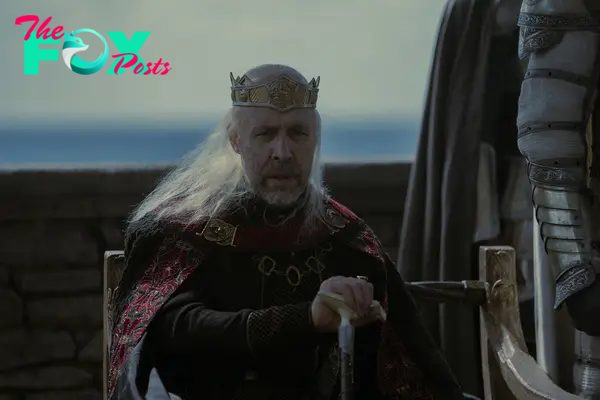
For those who have fallen asleep the many dozens of times characters have talked about the Song of Ice and Fire on both this show and on Thrones, here's a refresher: In the very first episode of House of the Dragon, King Viserys Targaryen (Paddy Considine) tells his daughter Princess Rhaenyra (the younger version played by Milly Alcock) that their ancestor Aegon the Conqueror had an important vision:
Aegon foresaw the end of the world of men. It is to begin with a terrible winter gusting out of the distant North. Aegon saw absolute darkness riding on those winds, and whatever dwells within will destroy the world of the living. When this great winter comes, Rhaenyra, all of Westeros must stand against it. And if the world of men is to survive, a Targaryen must be seated on the Iron Throne, a king or queen strong enough to unite the realm against the cold and the dark. Aegon called his dream the song of ice and fire. This secret has been passed from king to heir since Aegon’s time. And now you must promise to carry it and protect it.
He reveals this to her only after deciding to formally name Rhaenyra as his successor—upending decades of a dynasty defined by male leaders. It was a nice way to introduce some dramatic tension, and provided a through-line between the Martin-authored stories. But that wasn't the end of it.
Viserys' obsession with the Song of Ice and Fire
At the end of Season 1, as he lay dying, Viserys confused Alicent with Rhaenyra and repeated a version of this prophecy to her. "Aegon—his dream. The Song of Ice and Fire. It is true. What he saw in the North. The Prince That Was Promised." When Alicent says she doesn't understand, he goes on: "The Prince to unite the realm against the cold and the dark. It is you. You are the one. You must do this." Alicent takes this to mean she must claim the throne for Aegon, her own son with Viserys.
Alicent misunderstanding Viserys felt contrived. The writers were clearly attempting to make Alicent sympathetic, rather than craven and power hungry. She uses a single piece of evidence to justify her actions, which strips her of agency. There is no way someone who her intelligence would actually take this conversation to mean that Viserys had changed his mind on Rhaenyra succeeding him. She clings to this even as several characters, including Aegon himself, express skepticism that Viserys would have changed his mind after years of insisting Rhaenyra would be his heir. Instead of coming across as complex, she simply appears deluded.
Read More: What to Know About the Curse of Harrenhal in House of the Dragon
The House of the Dragon writers also never quite explained why Viserys was so worked up about this prophecy. While he was alive, we see him obsess over "dreamers," or people who can see the future. He says he wished he was one. And yet he ignores the fact that his own daughter, Helaena, is a proven dreamer who correctly predicts that Aemond would lose an eye in order to obtain a dragon while Viserys was still alive. She goes on to accurately forecast Rhaenys' dragon bursting from beneath the floorboards during Aegon's coronation and that her son Jaehaerys should fear the rats. (A ratcatcher nicknamed "Cheese" kills Jaehaerys in front of Helaena.) And yet Viserys never seemed to have a conversation with Helaena let alone interrogate her talent.
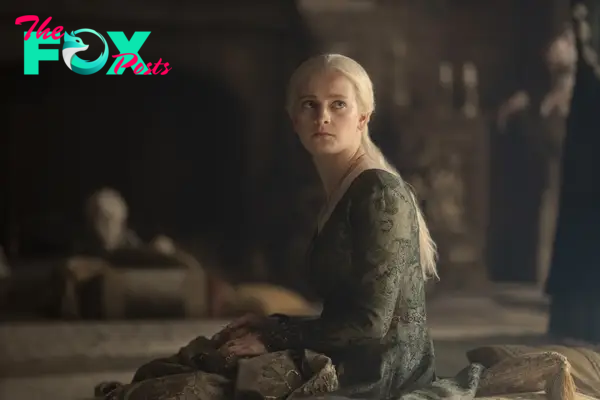
Admittedly, Viserys was neither the brightest king, nor the best father. He spent more time building his lego set of Valyria than actually training his potential heirs to rule. So it's not shocking that he focused on one single, old prophecy rather than the many being uttered in his midst. Still, we never get an explanation for why he puts so much stock in this particular prediction.
Alicent is now officially the villain
But, in Season 2, Viserys is dead. So we can end all this Prince Who Was Promised talk, right? Right?!?
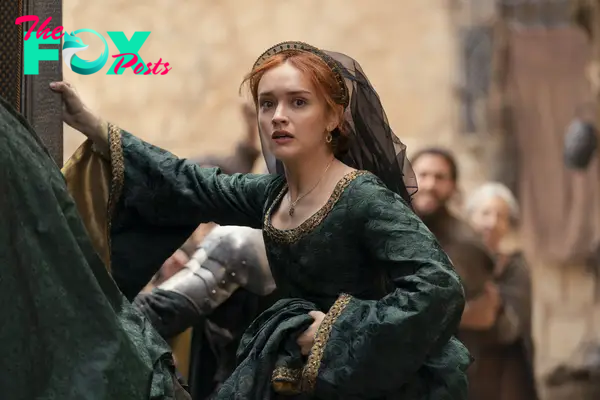
Not so fast. As Team Black and Team Green barrel toward all-out dragon war—and each queen begins to lose control of the insecure and volatile men surrounding them—Rhaenyra looks for an opportunity to make peace. She correctly surmises that Alicent is as hesitant to burn Westeros to the ground in a tussle for power as Rhaenyra herself is. Rhaenyra plots with her new advisor Mysaria (Sonoya Mizuno) to smuggle herself into King's Landing, disguise herself as a nun, and intercept Alicent at the Great Sept.
This plan certainly strains credulity: Surely King Aegon (Tom Glynn-Carney), as thick as he may be, would have upped security after his son was decapitated in his own bed. But no matter, the point was to reunite two of the most compelling characters in the series.
But it's the content of their conversation that proves most maddening. Rhaenyra greets Alicent with the end of a dagger and asks for an audience. Briefly the two seem to be on the same page. Rhaenyra appeals to Alicent's reason. "Men trained up for battle are eager to fight, to seek blood and glory," she says. "I know you do not have that desire in you...I have come to see if we may uncover some path towards peace."
Rhaenyra denies that she had anything to do with the decapitation of Alicent's grandson Jaeherys. Alicent likewise says she "repudiates" the actions of her son Aemond, who killed Rhaenrya's son Luke. "Of course you do," says Rhaenyra, the two empathizing with one another. But then they come to the question of who should rule the realm. "Your father changed his mind," Alicent insists.
"You lie," Rhaenyra replies.
Rhaenyra finally asks what her father said on his deathbed. "It was hard at times to understand," says Alicent. "But he spoke Aegon's name. He said he was the prince who was promised to unite the realm."
"What?" Rhaenyra asks. "Did my father use those words? 'The Prince That Was Promised?'" Alicent nods that he did. "He spoke to you about the Song of Ice and Fire?" Rhaenyra asks. Alicent looks confused and shakes her head.
"It's a story he once told about Aegon the Conquerer," Rhaenyra explains.
Alicent hesitates as she replies, "The conquerer?" It seems that Alicent is realizing her mistake: She did misinterpret her late husband after all. But when Rhaenyra says, "There has been a mistake," Alicent remains firm. "There has been no mistake," Alicent says.
On a grander, meta level, the show's focus on this prophecy—the entire war hinges on Alicent's misinterpretation of it—is particularly strange considering that it did not end up mattering in Game of Thrones. The prophecy was never fulfilled, at least not to the letter.
When the White Walkers toppled the Wall and invaded Winterfell, it was Cersei Lannister who sat on the Iron Throne, not the two remaining Targaryens, Jon Snow, or Daenerys Targaryen. Jon Snow was, in theory, the Prince Who Was Promised, uniting ice and fire with his Stark and Targaryen blood. But it was Jon's half-sister Arya, a Stark, who murdered the Night King and thus defeated the White Walkers. And, of course, some fans are still trying to figure out if Jon or Daenerys or Bran was the person "born again amidst smoke and salt" as another version of the prophecy stated.
So why bring up the Song of Ice and Fire again in House of the Dragon? The only reason is to cast Alicent as the official villain of the show. She now knows a mistake has been made. And yet she insists on forging ahead with her son's claim to the throne. The show was better off when both women's worldviews were less craven and more nuanced.
-
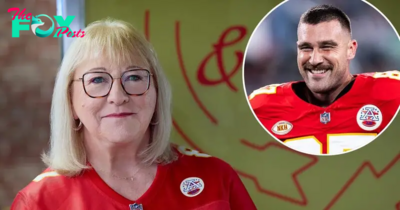
 Entertainment1h ago
Entertainment1h agoDonna Kelce’s ‘Holiday Touchdown’ Cameo Includes Sweet Easter Egg to Son Travis: ‘Love You Mommy’
-
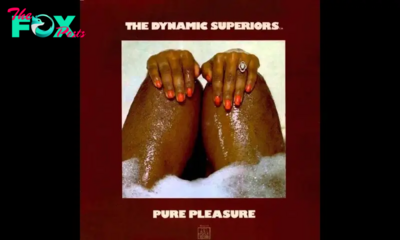
 Entertainment4h ago
Entertainment4h agoAmerica On CoffeeWe’re simply inviting you to take a timeout into the rhythmic ambiance of our breakfast, brunch and/or espresso alternatives. We’re comfortable everytime you cease by.Shoe Shoe Shine – The Dynamic Superiors
-

 Entertainment9h ago
Entertainment9h ago3 Completely different Kinds of TV Appearing Roles
-

 Entertainment9h ago
Entertainment9h agoAmerica On CoffeeWe’re simply inviting you to take a timeout into the rhythmic ambiance of our breakfast, brunch and/or espresso alternatives. We’re comfortable everytime you cease by.SYRUPING UP YOUR VERY OWN COFFEE FLAVORS
-

 Entertainment10h ago
Entertainment10h agoMeet Ava, the Golden Tiger Cub in Thailand Set to Be the Next Cute Viral Sensation
-
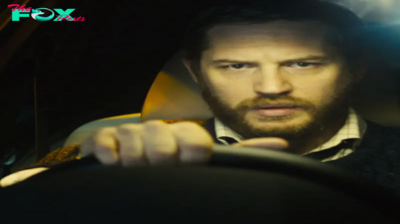
 Entertainment10h ago
Entertainment10h agoBest Tom Hardy Movies that Are Must-Watch
-
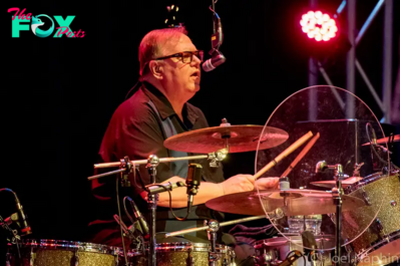
 Entertainment15h ago
Entertainment15h agoThe Smithereens with John Hampson – West Herr Riviera Theatre – North Tonawanda, NY – November 20, 2024
-

 Entertainment20h ago
Entertainment20h agoAmerica On CoffeeWe’re simply inviting you to take a timeout into the rhythmic ambiance of our breakfast, brunch and/or espresso alternatives. We’re comfortable everytime you cease by.Vacation Espresso Cocktail
